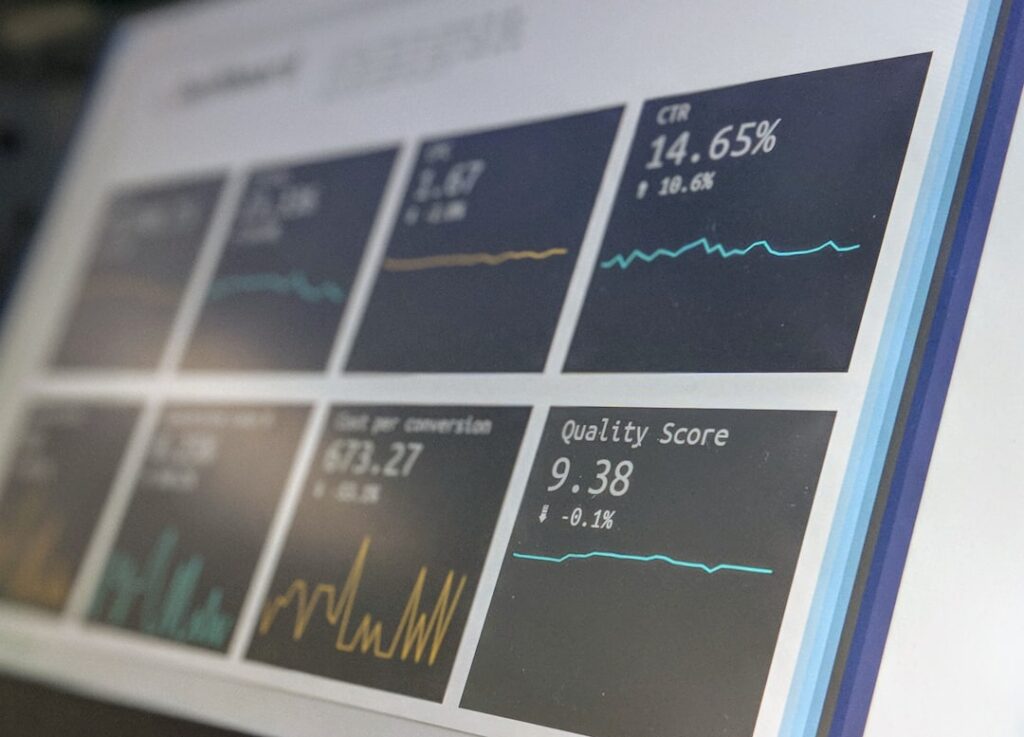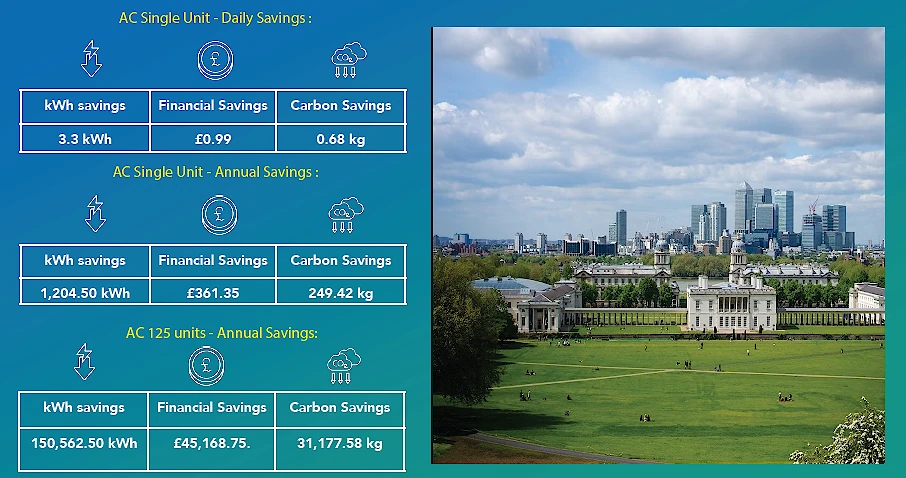The cost of rising energy in the UK
Energy costs are rising in the UK, and businesses are feeling the pinch. With increasing operational expenses, companies are looking for ways to mitigate the impact of higher energy bills. This article explores why energy costs are increasing, how they affect businesses, and what solutions are available to manage these expenses.
“81% of UK businesses expect to raise prices in the next two years in response to high energy costs” PwC research
Why Are Energy Costs Rising?
Energy prices in the UK have been climbing due to several factors. Understanding these reasons can help us to prepare and adapt.
Global Energy Market Fluctuations
The global energy market significantly influences UK energy prices. Supply and demand dynamics, geopolitical tensions, and natural disasters can cause fluctuations in energy prices. When global oil and gas prices rise, so do the costs for businesses in the UK.
Regulatory Changes
Government policies and regulations also contribute to rising energy costs. Initiatives aimed at reducing carbon emissions, while beneficial for the environment, often come with added costs, which are usually passed down to consumers and businesses.
Infrastructure and Maintenance Costs
Maintaining and upgrading energy infrastructure is costly. As the UK transitions to greener energy sources, investments in new technologies and systems are necessary, and this is reflected in energy prices.
The real cost of rising energy
“Over the last two years, 77% of businesses said high energy costs had driven up the price of their products and services, at least moderately. Over a quarter of all companies cited energy costs negatively impacting profits and margins over the last two years.” PwC research
Rising energy costs affect businesses in various ways, from increased operational expenses to reduced competitiveness. Understanding these impacts can help companies to develop strategies to cope.
Increased Operational Expenses
Higher energy bills mean increased operational costs. These expenses can significantly affect the bottom line for energy-intensive industries, such as manufacturing and logistics. Small and medium-sized enterprises (SMEs) are particularly vulnerable as they often lack the financial buffers of larger corporations.
Reduced Competitiveness
When energy costs rise, the overall cost of production goes up, making UK businesses less competitive than companies in countries with lower energy costs. Higher prices can lead to reduced sales and profitability.
Pressure on Profit Margins
Increased energy costs can squeeze profit margins, especially for businesses that cannot pass these costs onto their customers. This pressure can lead to cost-cutting measures, including layoffs and reduced investment in growth initiatives.
Energy Efficiency Solutions
Businesses can adopt various energy efficiency solutions to combat rising energy costs. These strategies can help reduce energy consumption and lower bills.
Conduct Energy Audits

An energy audit can identify areas where a business can improve energy efficiency. By analysing energy usage patterns, companies can pinpoint inefficiencies and develop targeted strategies to address them.
Upgrade to Energy-Efficient Equipment
Investing in energy-efficient equipment can yield long-term savings. For example, replacing old lighting with LED lights or upgrading to energy-efficient HVAC systems can significantly reduce energy consumption.
Implement Energy Management Systems
Energy management systems (EMS) allow businesses to monitor and control their energy usage in real-time. Using data-driven insights, companies can optimise their energy consumption and reduce waste.
Green Technology and Solutions
In addition to energy efficiency measures, businesses can explore green technology and solutions to manage rising energy costs. These sustainable options lower energy bills and contribute to environmental goals.
An example of technology innovation is Coolnomix from Emissis. Coolnomix is a globally patented, innovative, retrofit, energy reduction device that reduces energy consumption and C02 emissions when installed on air conditioning (AC) and refrigeration equipment without affecting the performance or output of these units.
Solar Power
Solar power is a renewable energy source that can help businesses reduce reliance on traditional energy. Installing solar panels can provide a significant portion of a company’s energy needs, leading to lower energy bills and reduced carbon footprint.
Wind Energy
Wind energy is another viable option for businesses looking to go green. While the initial investment can be high, the long-term benefits include lower energy costs and a sustainable energy source.
Green Building Practices
Adopting green building practices such as using sustainable materials, improving insulation, and incorporating natural lighting, can enhance energy efficiency. Green buildings often have lower energy costs and are more comfortable for occupants.
Government Incentives and Support
The UK government offers various incentives and support programs to encourage businesses to adopt energy-efficient and green solutions. Understanding these options can help companies make informed decisions (see references for more information).
Grants and Loans
Several grants and loans are available to support businesses in their energy efficiency and renewable energy projects. These financial aids can help offset the initial costs of implementing green technologies.
Tax Incentives
Tax incentives, such as the Enhanced Capital Allowance (ECA) scheme, allow businesses to claim tax relief on investments in energy-efficient equipment, helping to reduce the overall cost of adopting new technologies.
Advisory Services
Government and non-profit organisations like Green Economy UK offer advisory services to help businesses navigate the complexities of energy efficiency and renewable energy projects. These services can provide valuable insights and support.
Case Studies of Successful Implementations
Looking at real-world examples can provide inspiration and practical insights for businesses considering energy efficiency and green solutions.
Case Study 1: Healthcare – NHS

Air conditioning and refrigeration emissions account for over 25% of a hospital’s carbon emissions. After installing enPact from Emissis, the NHS achieved significant energy savings of over 1,100 kWh per unit annually, reducing its carbon footprint. The team was highly satisfied with their environmentally conscious investment.
Case Study 2: Education – Greenwich University

Following a successful pilot project, Greenwich University has committed to installing 124 enPact energy-saving units across its air conditioning (AC) estate, which includes three campuses: Medway, Avery Hill & Bathway, and Greenwich.
The new enPact units should reduce energy consumption by 23%, saving the University over 315,000 kWh in electricity overspending and over 85 tonnes of C02 by reducing the emissions from each campus site.
Case Study 3: Food Production – Harvey & Brockless
EnPact was a game-changer for Harvey & Brockless in their quest for sustainability. The impact has been profound, with the air conditioning units registering a remarkable drop in consumption by 670,000 kWh annually. This significant reduction reflects the company’s commitment to environmental responsibility and underscores enPact’s effectiveness in optimising energy usage.
Conclusion
Rising energy costs are a significant challenge for UK businesses. However, by adopting energy efficiency solutions and green technologies, companies can mitigate these impacts and even turn them into opportunities for growth and sustainability. With government incentives and support, the transition to a more energy-efficient and environmentally friendly operation is more accessible than ever. By taking proactive steps, businesses can better manage their energy costs and contribute to a greener future.
Footnote:
Emissis is a leading energy and cleantech company that helps private and public sector businesses unlock the benefits of reducing carbon emissions and energy use.
Emissis recently joined forces with global decarbonisation leaders Univers to offer clients an end-to-end solution. Their EnOS™ platform connects on-the-ground operational technology and in-the-cloud intelligence to deliver real-time energy data and data-driven carbon monitoring, reporting and abatement.




